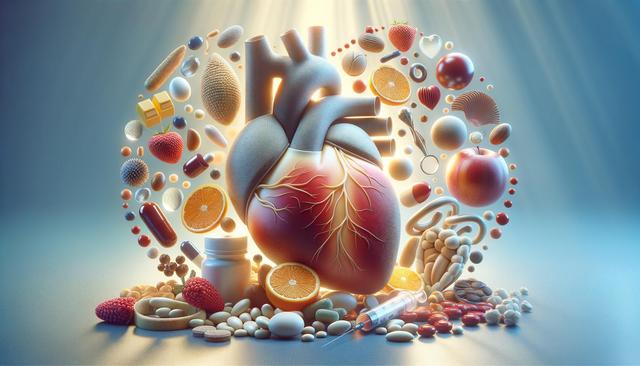Understanding Cholesterol and Its Impact
Cholesterol is a waxy, fat-like substance your body needs to build healthy cells. However, having too much low-density lipoprotein (LDL), often labeled as “bad” cholesterol, can increase the risk of heart disease. Many people wonder what causes high cholesterol in healthy people, and the answers can vary. While genetics play a role, lifestyle factors such as diet, physical activity, smoking, and stress levels contribute significantly. Even individuals with normal weight and no history of cardiovascular disease may develop high cholesterol due to poor dietary choices, excessive alcohol intake, or lack of regular exercise.
When LDL levels rise, they can lead to plaque buildup in the arteries, restricting blood flow and potentially causing heart attacks or strokes. High-density lipoprotein (HDL), or “good” cholesterol, helps remove LDL from the bloodstream. Balancing these two types is crucial for maintaining optimal heart health. Regular screening and understanding personal risk factors are the first steps in effective cholesterol management.
Top Lifestyle Changes to Reduce Cholesterol
Making consistent, manageable changes to your daily routine can significantly impact cholesterol levels. Among the top lifestyle changes to reduce cholesterol are adopting healthier eating habits, increasing physical activity, and reducing stress. These strategies not only help lower LDL but also support overall cardiovascular health.
Key lifestyle changes include:
- Engaging in at least 30 minutes of moderate exercise most days of the week
- Reducing intake of saturated fats found in red meat and full-fat dairy products
- Quitting smoking and limiting alcohol consumption
- Managing stress through mindfulness, yoga, or other relaxation techniques
These adjustments are sustainable over time and provide multiple health benefits beyond cholesterol control. For lasting results, it’s important to set realistic goals and track progress regularly.
The Best Foods to Lower Cholesterol Quickly
Diet plays a central role in cholesterol management. Incorporating the best foods to lower cholesterol quickly can make a measurable difference in a relatively short time. These foods help decrease LDL levels while promoting better heart health.
Some cholesterol-friendly foods include:
- Oats and other high-fiber grains
- Fatty fish like salmon and sardines, rich in omega-3 fatty acids
- Nuts and seeds, particularly almonds and flaxseeds
- Fruits like apples, grapes, and citrus that contain soluble fiber
- Vegetables such as leafy greens, broccoli, and carrots
Replacing trans fats and refined carbohydrates with these nutrient-dense options can lead to noticeable improvements. When planning meals, focus on variety and balance, ensuring a mix of fiber, healthy fats, and lean protein sources.
Cholesterol-Lowering Supplements That Work
In addition to diet and exercise, some individuals turn to supplements to support cholesterol reduction. There are several cholesterol-lowering supplements that work effectively when used in conjunction with a healthy lifestyle. However, it’s essential to consult a healthcare provider before starting any new supplement regimen.
Popular and well-researched supplements include:
- Plant sterols and stanols: Found in fortified foods and supplements, they help block cholesterol absorption in the intestines.
- Soluble fiber supplements: Psyllium husk is one example that aids in reducing LDL cholesterol.
- Omega-3 fatty acids: Available through fish oil capsules or algae-based supplements for vegetarians.
- Red yeast rice: Contains natural statin-like compounds but should be used under medical supervision.
While these products may assist in lowering cholesterol, they are not substitutes for a nutritious diet and active lifestyle. Safety, quality, and dosage are important considerations when choosing supplements.
Medical Treatments and Long-Term Management
For some individuals, lifestyle changes and supplements may not be enough. In these cases, medical treatment becomes necessary to manage cholesterol levels effectively. Physicians may prescribe statins or other medications to reduce LDL and prevent associated health risks. These treatments are especially common for those with a family history of heart disease or other chronic conditions.
Long-term cholesterol management requires ongoing commitment. This includes staying informed about your cholesterol numbers, following medical advice, and making adjustments as needed. Routine blood tests, typically every 4–6 years for adults, help monitor progress and guide treatment decisions. Combining medical options with the top lifestyle changes to reduce cholesterol enhances outcomes and reduces the likelihood of complications.
It’s also important to educate yourself about what causes high cholesterol in healthy people to help prevent recurrence. Lifestyle vigilance, even after reaching healthy cholesterol levels, is key to maintaining heart health.
Conclusion: Staying on Track for Heart Health
Managing cholesterol is a lifelong journey that involves understanding your risk factors, making informed choices, and maintaining a heart-healthy lifestyle. By focusing on the best foods to lower cholesterol quickly, integrating cholesterol-lowering supplements that work, and adopting the top lifestyle changes to reduce cholesterol, individuals can protect their cardiovascular health effectively. Whether you’re just starting or looking to fine-tune your approach, small, consistent steps can lead to meaningful improvements. Always consult with a healthcare provider before making significant changes, especially if medications or supplements are involved. With the right tools and commitment, long-term cholesterol control is entirely achievable.




Leave a Reply